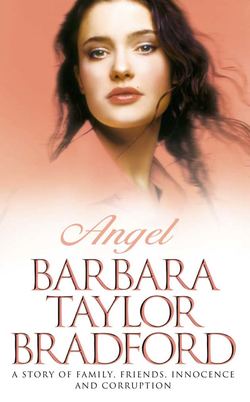Читать книгу Angel - Barbara Taylor Bradford - Страница 16
NINE
ОглавлениеThe house stood on a high, densely-wooded hillside in Benedict Canyon, overlooking Bel-Air.
It was an old house, dating back to the 1930s and Hollywood in its heyday. Although Spanish Colonial in style, the interiors had been considerably remodelled in the 1950s by a legendary producer and his movie-star wife. To this sprawling, comfortable dwelling they had brought their unique taste, adding fine wood panelling, handsome fireplaces and vast floor-to-ceiling windows that drew the lovely surroundings into the house to become part of the decor.
Shaded terraces, flower-filled gardens with fountains and statuary, and an unusual pool house were the other elements that helped to underscore the beauty of the bucolic setting.
To Johnny Fortune, the house on the hill, as he always referred to it, was a magical place, and he loved it in a way he had not loved any other material thing, except for the guitar his uncle had given him when he was a boy. The house had great distinction and elegance, and not one ounce of pretension whatsoever. The spacious rooms were beautifully proportioned, airy and filled with light, and almost all of them boasted a fireplace – even the pool house had one.
One of the most important things about the house was that it had not been tampered with since its remodelling in the fifties. It had therefore retained the purity of design imposed on it by the producer and his wife. Everything they had done had been in impeccable taste, and subsequent owners had had the good sense not to touch the beautiful interiors and exteriors.
Whenever he was in the house on the hill, Johnny experienced a great sense of well being; it was the nearest he ever came to feeling happy. Many things contributed to this emotion – the obvious beauty of the place, its intrinsic comfort and luxury, its grand history, the fame and importance of its past owners, including, at one point, Greta Garbo. And, not the least by any means, just the prestige of owning the house gave him a great deal of satisfaction.
Johnny had never thought he would live in a house like this, not even in his wildest dreams; it was as far removed from his beginnings as anything could ever be.
Johnny Fortune, born Gianni Fortunato in 1953, had grown up on the crowded streets of Lower Manhattan, and his home had been a cramped and dismal apartment on Mulberry Street, where he had lived with his uncle and aunt, Vito and Angelina Carmello.
His father, Roberto Fortunato, he had never known; his mother, Gina, he could barely remember. After his aunt died, when he was five years old, his Uncle Vito, who was his mother’s brother, had been both father and mother to him until he was fifteen. It was then he had dropped out of school, knowing he would never make it to college anyway.
And so the streets of New York became his university, just as they had, in a sense, been his kindergarten. At an early age he had learned to take care of himself, was street-smart, forever wary and on guard, conscious of everyone and everything going on around him.
But Johnny had never been a typical street kid, full of sass, with a cheeky mouth and a belligerent manner; nor had he been a tough and dangerous young punk, constantly making trouble, or in trouble with the law. Uncle Vito had seen to that.
Also, Johnny was lucky in that he had something special, something which made him different from the other kids, lifted him out of the ordinary, and, in a peculiar way, even protected him. That something special was a voice. It was a sweet and melodious voice, one so pure it was breathtaking, and it caused his uncle’s colleagues and male friends to listen to him rapt, almost in awe, applaud loudly when he had finished and generously shower him with dollar bills.
Without exception, each one of them told him he sang like an angel. Uncle Vito said his voice was a gift from God, and that he should treat it with respect and be forever thankful for his great gift. He was.
For a while, the young Gianni toyed with the idea of calling himself Johnny Angel, after the popular song of that title. But in the end he decided to use Johnny Fortune, the anglicization of his own name, hoping that it presaged things to come. And ultimately it did, although it took Johnny many years to make that fortune.
Now, on this cool November evening, his past was the last thing on his mind. Johnny was thinking about the future – next year to be exact. It seemed to him that 1992 had all but disappeared before it had even begun, what with the foreign concert tours which had been planned, plus the lengthy recording sessions for his new disc, which his manager had already set up with the recording studio in New York. Once Christmas was over he realized his time was no longer going to be his own; the next twelve months were spoken for.
